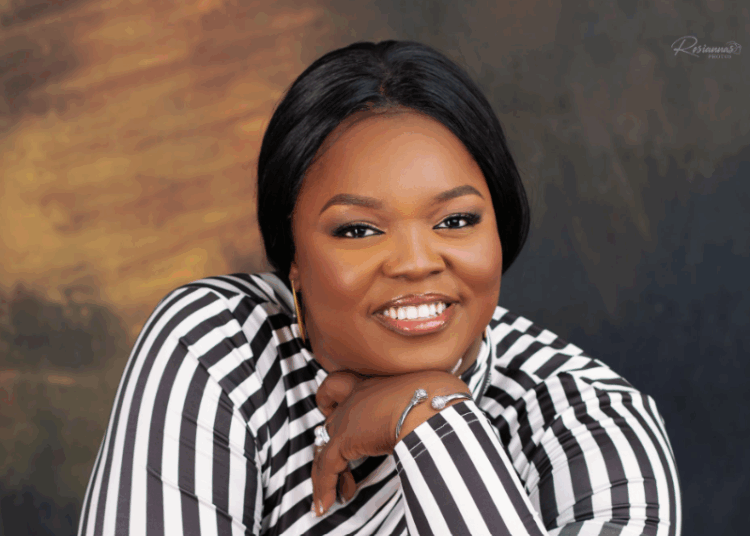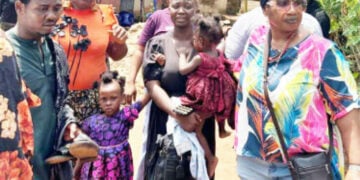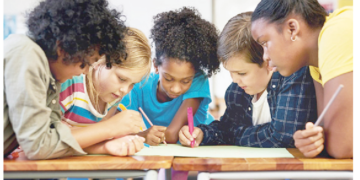Gender-based violence (GBV) is not a distant problem; it is woven into the fabric of everyday life for millions of Nigerian families, often hidden behind closed doors. Recent data and tragic headlines reveal a crisis that demands urgent attention and collective action.
One in three Nigerian women has experienced some form of violence, and about one in five has suffered physical violence. This revelation was recently shared by Dr. Nene Oluwagbohun, CEO, NeneOlu LLC., Founder, You and Your Child, a U.S. based Family Systems Coach, Parenting and Teen Educator, Mental Health Advocate, Gender-Based Violence Interventionist and Bestselling Author with about two decades of experience in coaching parents, teenagers and providing interventions in diverse family crises. You and Your Child is a non-profit organization established both in the United States of America and Nigeria, established to support families who are faced with critical life challenges including food, insecurity, and lack of education globally.
Dr. Nene Oluwagbohun disclosed that by the age of 15, 31% of Nigerian women report experiencing physical violence, predominantly perpetrated by intimate partners.
In 2022 alone, 401 women reportedly died because of sexual and gender-based violence (SGBV), and 149 women lost their lives to femicide in 2024.
GBV in Nigeria takes many forms:
• Physical and verbal abuse
• Economic abuse and discriminatory inheritance rights
• Female genital mutilation/cutting (FGM/C)
• Child marriage: Nigeria has the third highest number of child brides globally and ranks 11th in child marriage rates
• Exploitation of child domestic workers; up to 15 million children work under exploitative conditions, with one-third living with relatives
This societal menace was particularly experienced during the COVID-19 pandemic when a 149% surge in SGBV cases across 23 states in just two weeks of lockdown in April 2020 was recorded according to a 26th of November United Nations Office on Drugs and Crime publication.
With the ongoing regional conflicts, displacement, and economic hardship, especially in the North East, women and girls more vulnerable to violence, including abduction and sexual slavery by insurgent groups.
Dr. Oluwagbohun highlighted that the social stigma, poor awareness, and distrust in the justice system mean many cases go unreported, allowing perpetrators to act with impunity.
Nigeria accounts for about 20 million GBV survivors, roughly 10% of the global total.
Africa, including Nigeria, recorded the highest rates of intimate partner and family-related femicide in the world last year.
According to a VOA November 26, 2024, women with disabilities, market women, and daily earners face even greater risks and struggle to access help due to social isolation and economic dependence.
In the past decade, Nigeria has made significant legislative strides against gender-based violence (GBV), most notably with the enactment of the Violence Against Persons (Prohibition) Act (VAPP) in 2015.
The VAPP Act criminalizes a wide range of abuses, including physical, sexual, and emotional violence, as well as harmful practices like female genital mutilation and child marriage. It also provides legal remedies such as protection orders and compensation for victims and recognizes that men can also be victims of rape. The VAPP Act is considered the most comprehensive law addressing domestic and gender-based violence in Nigeria. The law has helped make women and girls safer by providing clear legal recourse and penalties for offenders, including life imprisonment for rape.
Nigerian courts have increasingly recognized domestic violence as a violation of fundamental rights and have provided judicial protection for victims, including awarding damages and recognizing abuse as grounds for divorce.
Despite these advances, the effectiveness of GBV laws in Nigeria is undermined by several persistent challenges:
• Limited Adoption: As of recent years, only 15 out of 36 states have fully domesticated the VAPP Act, leaving large areas without its protection. The law’s impact is therefore geographically limited.
• Lack of Awareness: Many citizens, including survivors and some law enforcement officials, lack adequate knowledge of the law and its provisions, leading to underreporting and poor enforcement.
• Cultural and Social Barriers: Deep-rooted cultural norms, stigma, and the perception that domestic violence is a private family matter discourage victims from seeking help.
• Corruption and Delays: Corruption among law enforcement agents and delays in the justice system (such as frequent transfer of officers and magistrates, and overcrowded courts) often result in stalled or abandoned cases, with perpetrators sometimes evading justice through bribery or informal settlements.
• Inadequate Support for Victims: There are insufficient shelters, legal protection, and support services for survivors, and protection orders are often delayed or not enforced.
• Survivor Reluctance: Many survivors are reluctant to pursue prosecution, especially when the perpetrator is a family member or breadwinner, preferring restitution or non-repetition over criminal penalties.
Dr. Oluwagbohun joins her voice to both national and international industry experts in calling for Nigeria’s government to protect the law that combats gender-based violence (GBV). The VAPP Act itself is currently under threat of repeal or amendment, with some lawmakers arguing it is ambiguous or insufficiently comprehensive, while activists and international organizations urge its strengthening and protection.
Experts and stakeholders consistently call for broader domestication of the VAPP Act across all states, increased funding, better training for law enforcement, and greater public awareness to ensure the law’s effectiveness.
While Nigeria’s legal framework, anchored by the VAPP Act, represents a significant step forward in addressing gender-based violence, its effectiveness is hampered by limited adoption, weak enforcement, cultural resistance, and systemic challenges. The law has potential to provide robust protection, but meaningful change will require comprehensive implementation, public education, and sustained political will to move from legislation to real-world impact.
In Dr. Oluwagbohun’s final words, “The scars we hide are not just physical. They are emotional, economic, and social. Until every Nigerian home is truly safe, our work is not done.”
Gender-based violence is a crisis that lives in the heart of the family. Breaking the silence is the first step to healing, and to ending the cycle for future generations.





